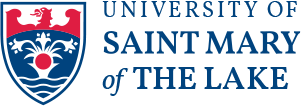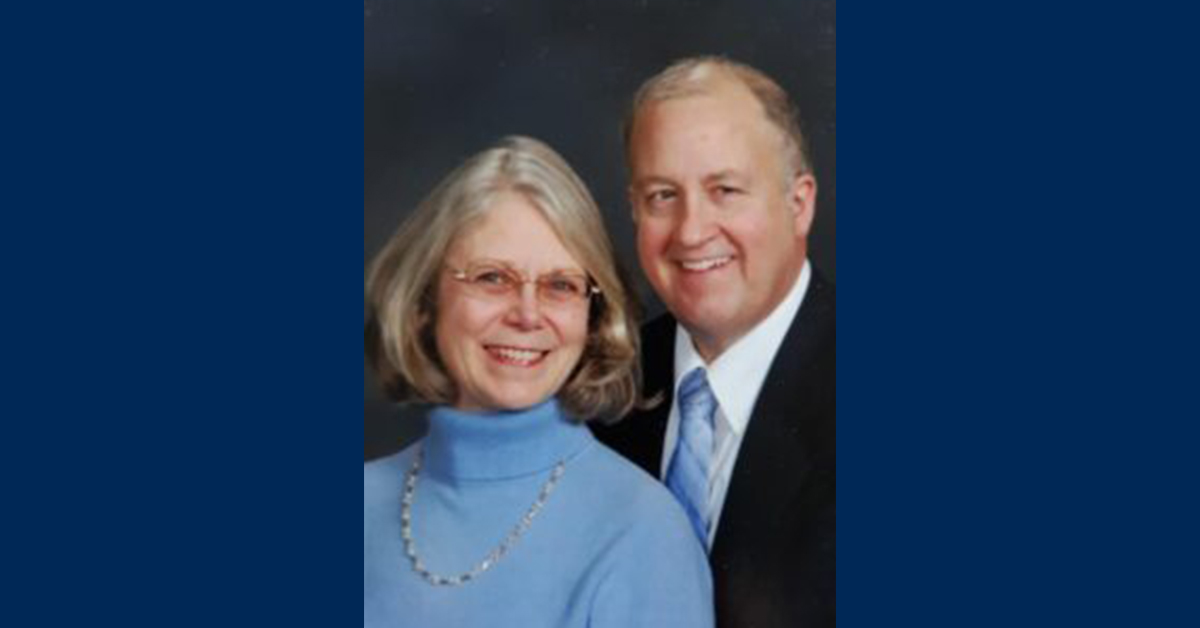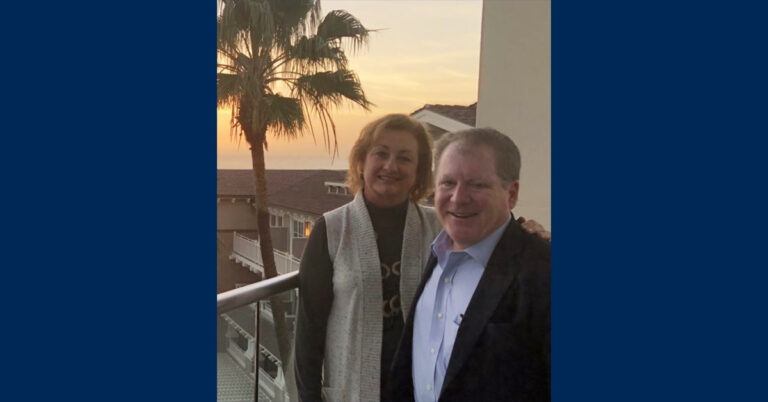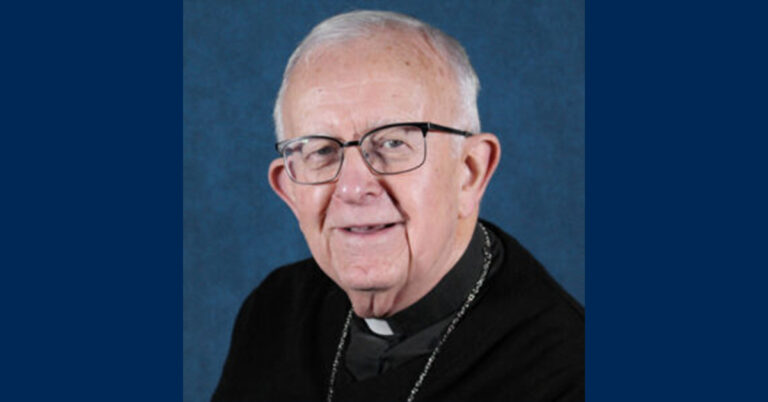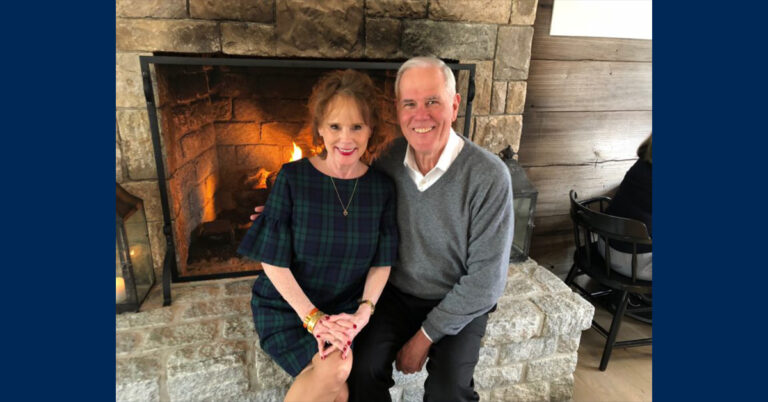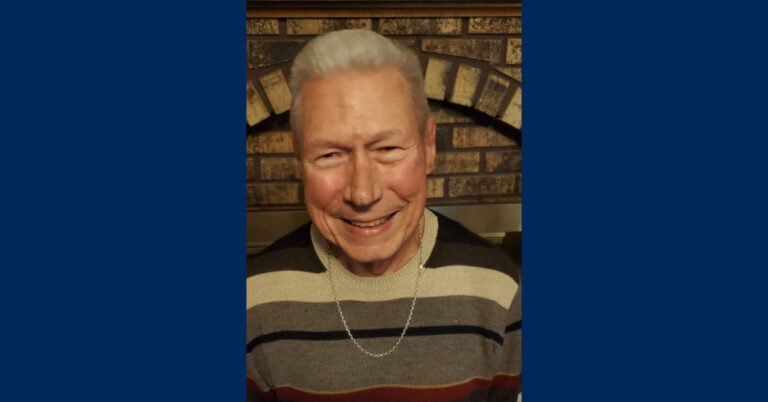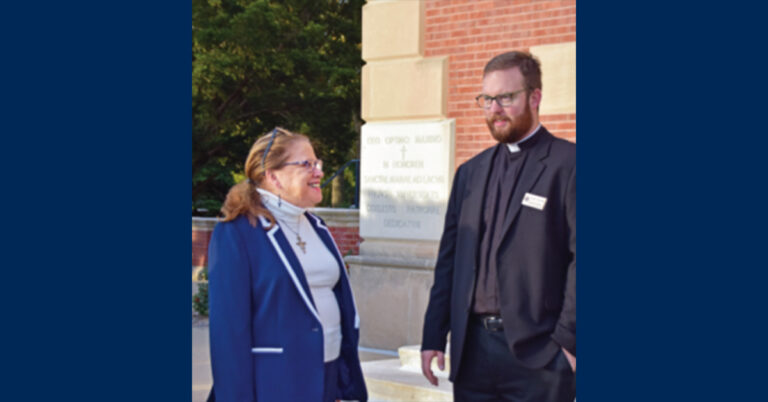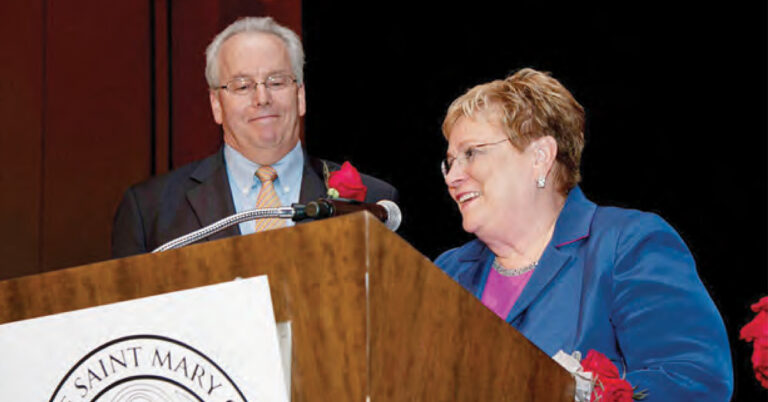Ken and Mary Fivizzani – Supporting the Global Impact of Mundelein Seminary
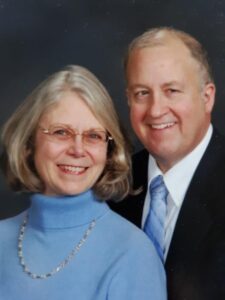 Ken and Mary Fivizzani have been supporters of the University of Saint Mary of the Lake/Mundelein Seminary for many years. For National Estate Planning Awareness Week (Oct. 19-25), they have graciously shared their story with us in hopes of inspiring others to consider planning for the future and supporting the next generation of parish priests in their estate plans.
Ken and Mary Fivizzani have been supporters of the University of Saint Mary of the Lake/Mundelein Seminary for many years. For National Estate Planning Awareness Week (Oct. 19-25), they have graciously shared their story with us in hopes of inspiring others to consider planning for the future and supporting the next generation of parish priests in their estate plans.
Ken first connected with Mundelein Seminary after attending Quigley North Seminary for high school and later Niles College. Ken entered his first year at Mundelein Seminary in September of 1972. During his first quarter of third-year theology, he discerned to leave the seminary in order to marry and then pursued a Ph.D. in chemistry from the University of Wisconsin-Madison. In the following Q&A, Ken and Mary graciously express their gratitude for the quality education Ken received within the Archdiocese of Chicago, and how they both hope to support the future of our Church and our future priests.
What about the mission of the University of Saint Mary of the Lake appeals to you?
Mary: Obviously the mission of the formation of priests. I grew up in the Diocese of Green Bay and I still have family up there, and I know that Green Bay sends some of their seminarians to Mundelein. The mission of Mundelein goes beyond the Archdiocese of Chicago. Wherever we are, we seem to be reaping the benefits. The other thing is it’s not just priestly formation. The University is involved in formation of the laity, and women are involved. To me that speaks volumes. I truly support the inclusive mission of USML/Mundelein Seminary.
Ken: When we talk about the influence of Mundelein on the broader American church, if you look at the list of where the seminarians are coming from and the dioceses they are coming from, the majority of those dioceses have had at one time a bishop who came from Mundelein. That is where the influence of this is. It is a tremendous impact that Mundelein has on the American church. I am proud of that fact and very supportive of that mission.
Mary: On a more personal level, I am very grateful to Mundelein because it played a very lasting and formative role in Ken’s life and who he is. I look at Ken and I see a very deep commitment to his faith, a very deep commitment to the Church, our parish and his work in it. And I truly am very grateful to Mundelein and the Archdiocesan seminaries.
The mission of Mundelein goes beyond the Archdiocese of Chicago. Wherever we are, we seem to be reaping the benefits.
– Mary Fivizzani –
How have you used some of the skills and lessons learned from your time in seminary in your professional career and work?
Ken: When I left Mundelein and went for my graduate degree in science, I was pretty busy. I did not have much involvement in church other than going to Mass on the weekends and things like that. And life just continued. We got married after my first year at UW-Madison. And eventually I finished my degree and Mary decided to go back to school and get her pharmacy degree. When we finally found the parish we are at now—St. Thomas in Naperville, IL—we were riding home from church one Sunday and Mary was reading the bulletin and she asked me what is RCIA? And I said that’s how adults become Catholic. And she said to me, “You should do this, because you would be very good at this.” Anyway, based on that prodding I went and got involved in RCIA in 1986 and I am still involved in it all these years later. If you talk to anybody who is involved in any kind of church ministry, they will often tell you that you get as much out of it as the people they are serving, and certainly this is true for me in RCIA. It constantly challenges me about my faith, especially if I am teaching somebody the Church’s teachings and what that means to me. Do I believe that? What’s the meaning to me? It really is a two-way street.
What or who inspired you to include Mundelein Seminary in your estate plans?
Ken: One thing in our estate plan is we have set up things for every education institution that we have been involved in from high school and up. And so Mundelein was one of those, and as Mary said, it was Mundelein that helped make me who I am. And in terms of surviving in life, education is where you get that foundation, whether you go to a seminary or not. We should all be grateful to the schools that helped educate us to help us do the things that we do. And that is the fundamental basics of our plan—to thank those who provided the education and training that we needed to have a successful and relatively happy life.
What are your hopes for your generous gift?
Ken: It is a paying it forward. When I went to Quigley, my folks were middle class and certainly not wealthy and the expectation was that I had to work for whatever I wanted. At Quigley and other seminaries, they always said if you don’t have the money, don’t worry about it. This is my way of repaying back. I had donated to Quigley, Niles College and St. Joseph’s College Seminary for as long as they were in existence; I was just paying back what the Archdiocese has given me.
Why do you think it is important to support seminary education and the future of the Catholic Church?
Ken: It is crucial. The training that the seminarians go through is evolving as we learn the various needs that people have, and I think that’s great. And if you at all value the role of priests that serve you, that’s where they come from. They come from seminary, and that’s how they learn to become priests. Formation does evolve and that I think makes for better priests.
The things that the seminarians do today weren’t around when I was at Mundelein. They were just starting things like clinical pastoral education. Now there are many more seminarians that speak Spanish and are encouraged to learn Spanish, and that’s a wonderful thing. They are bringing more of a pastoral emphasis to the program.
Mundelein is a really innovative place to train priests, and you are going to get that back in terms of the quality of priests and also the spiritual development that they have. If you have any activity with the Church, this is going to benefit you.
It is crucial. The training that the seminarians go through is evolving as we learn the various needs that people have, and I think that’s great. And if you at all value the role of priests that serve you, that’s where they come from.
– Ken Fivizzani –
If you have any questions about how you might support Mundelein Seminary with a planned gift, please contact Jim Jarocki at jjarocki@usml.edu or 847-970-4841.
